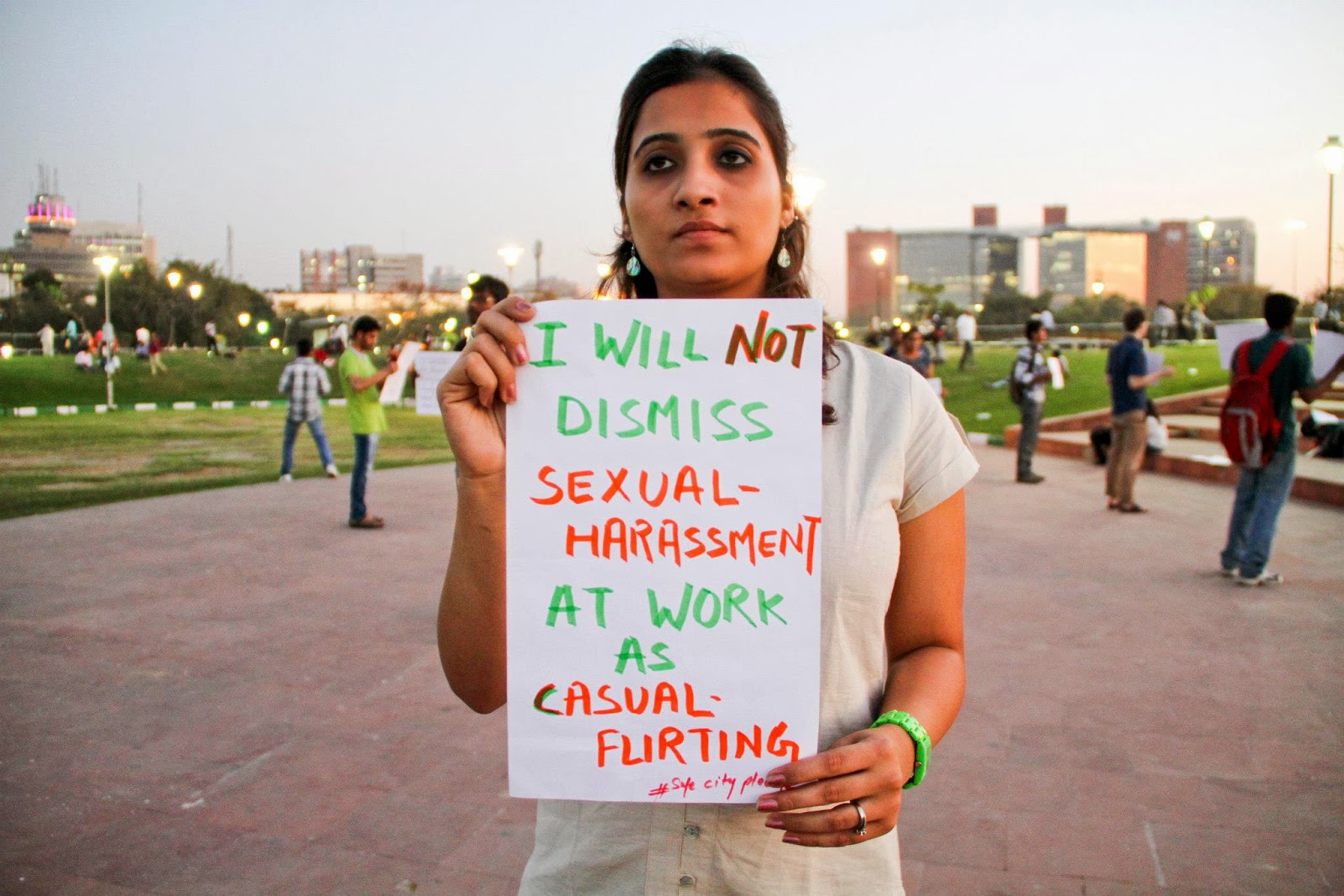This article is jointly written by Abhyudaya Agarwal and Amartya Bag.
Sexual harassment complaints can be resolved at an organizational level, if the employer sets up the right mechanisms and processes in place. This is a case study to explain the reputational risks that arise from non-compliance with sexual harassment laws, or when senior management at the organization does not give due attention to sexual harassment at work and insensitively handles them. Having suitable mechanisms as required under the Vishaka guidelines, and handling the case according to such mechanisms could have probably prevented the public relations and reputational fiasco for Tehelka. These processes will need to be in compliance with 2013 act now.
This case study explains how absence of suitable processes and incorrect approach by the management led to a public relations and reputational crisis for Tehelka and its founding editor, Tarun Tejpal in criminal proceedings.
Tehelka, one of India’s renowned magazines and print houses, known for its investigative journalism and numerous sting operations, was marred when allegations of sexual harassment of an employee by its founder and Editor-in-Chief Tarun Tejpal in November, 2013 surfaced. The employee (complainant) was a principal correspondent of Tehelka, who was accompanying Tejpal at a five-star hotel in Goa in company-organised event, where she was sexually harassed and assaulted in the lift of the hotel.
Allegation of sexual harassment by the Editor-in-Chief of Tehelka, which known for its high level of investigative journalism, was a rude shock for the common public and subjected to media scrutiny, because of its previous active role in highlighting sexual violence in India, and which also carried a special issue on sexual violence in February 2013. There has been huge media outcry over this incident and claimed a downfall of an institution known for its integrity and firebrand journalism which exposed numerous corruption in the government. While, this could be one of the crucial reasons for the huge public attention, there are multiple reasons which resulted in snowballing of the whole episode.
The incident was further aggravated by the poor management and response by the Managing Editor of Tehelka, Shoma Chaudhury, who tried to downplay the whole event, and even tried to use “intimidation, slander and character assassination ” of the complainant. The complainant alleged that Chaudhury, instead of helping or assisting the complainant, tried to cover up the whole incident. The incident received huge publicity when a mail sent to the employees of Tehelka surfaced on the internet, which mentioned the event as “an untoward incident”, which according to many showed that the management did not treat it like a serious incident, and the management was trying to hide the allegations. As revealed later, it was not a single incident, but there were atleast two incidents of sexual assault in a single week. Moreover, the incident revealed, that Tehelka did not have a complaints committee or other procedure mandated under the Vishaka guidelines to resolve sexual harassment complaints at the workplace (the Sexual Harassment Prevention Act of 2013 was not in force at that point of time). The demand by the complainant to establish a committee to inquire into the incident was brushed off as “an internal issue”, even though sexual harassment is a criminal matter. Instead of establishing an ICC and conducting a proceeding, Tejpal voluntarily stepped down from the editorship for six months, which has been looked as an attempt to downplay the whole procedure of investigation and doing away with the due process followed by an appropriate punishment..
Tehelka management refused to lodge a police complaint initially as it was of the opinion that this is “an internal matter”, and later Chaudhury stated that it was for the complainant to approach the police. However, it is not clear whether the complainant was clearly aware of her legal rights under various laws, and whether she was aware that the provisions under the recently amended IPC could have given her more protection. The Vishaka guidelines mandated that the employer must approach the police in case an instance of sexual harassment at work was serious enough to constitute an offence under the Indian Penal Code. It is important for organisations to provide adequate guidance and assistance to the complainant in filing a police complaint. The statement by Chaudhury was not well thought of, and shows lack of consideration and support for the victim.
Note: The employer is bound to assist the complainant in filing a complaint with the police, if the complainant wishes so.
Subsequently, the Goa Police registered an FIR taking suo motu cognizance of the issue (that is, on their own initiative without a specific person reporting the incident to the police), and charged Tejpal under sections 354, 354-A (sexual harassment), 341 and 342 (wrongful restraint), 376 (rape), 376(2)(f) and 376 (2)(k) (taking advantage of official position and commission of custodial rape) and was arrested on November 30, 2013.Tejpal was released by an order of the Supreme Court later. The case against Tejpal is still pending in the district court.
From a reputational and public relations perspective, the following acts of Tehelka management aggravated the situation:
- Non-establishment of a suitable procedure to handle sexual harassment complaints (even after the complaint had arisen)
- The Managing Editor’s downplaying of sexual harassment allegations (instead of commencement of investigations)
- Internal communication to employees which reflected insensitivity, rather than organizational concern towards serious issues such as sexual harassment at workplace
- Opinion of the Tehelka management, that this is an internal issue and refusal to an express demand to set up a complaints committee
- Tejpal temporarily going underground, which indicated acceptance of guilt at some level
- Inadequate organizational response to a sexual harassment complaint which further undermined the faith in organizational willingness to handle such instances.
Takeaways
The following takeaways / lessons can be useful in ensuring that organizations do not face similar risks:
- Organizations must ensure that there is adequate legal compliance under the 2013 Act – such as establishment of complaints committees, putting up notices, etc.
- ICCs must take action when a complaint is filed, such as commencement of investigation or providing interim measures
- Organizations must ensure that complaints committees are effectively functioning
- Organizations must inform employees of their rights and steps that can be taken by them in case they are sexually harassed at work
If you are looking for an effective, accessible and super-fast way to comply with law, and want to find out more about a cloud-based tool that helps in organizational compliance, ICC capacity-building and 100% sensitization for all your employees, visit cloudtrain.in.
Creating a conducive workplace environment for their teams is becoming a challenge for professionals (lawyers, company secretaries, chartered accountants) or those working in HR, training, compliance and legal teams, especially in light of increasing regulatory intervention. Click here to find out about the Executive Certification in Sexual Harassment Prevention and Workplace Diversity offered by the National University of Juridical Sciences (NUJS), Kolkata, a top law university in India (which had also started the country’s most successful comprehensive online business law diploma in 2012).
 Serato DJ Crack 2025Serato DJ PRO Crack
Serato DJ Crack 2025Serato DJ PRO Crack











 Allow notifications
Allow notifications


